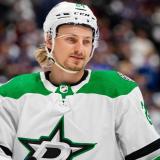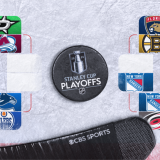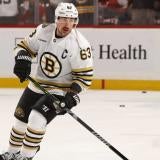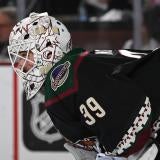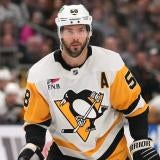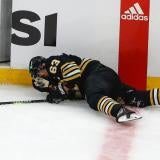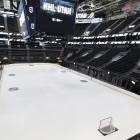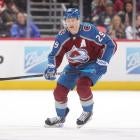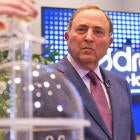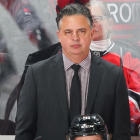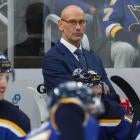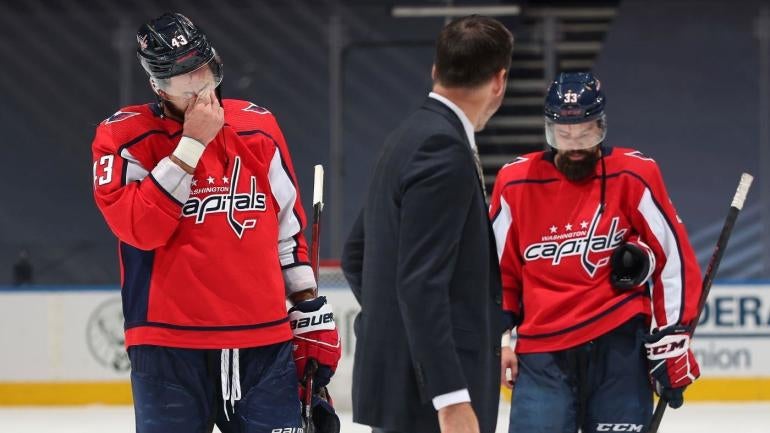
The Washington Capitals' bubble has been popped.
After finishing the regular season as the top team in an ultra-competitive Metropolitan division, the Capitals failed to advance out of the first round of the playoffs for the second consecutive year. The Caps failed to recapture their regular season magic after the restart and the Islanders needed just five games to send them packing.
So, where did things fall apart for Washington? Let's take a look at where things went wrong for the Capitals.
Failure to break Isles' defensive structure
Stop me if you've heard this one before: The Islanders were excellent defensively in this series. Barry Trotz's defensive system gave his former team fits as the Isles managed to completely suffocate Washington, who finished the regular season second in goals per game.
The Islanders gave the Capitals next to nothing at 5v5 in this series. Washington held the advantage in shot attempts (212-190) but there were a whole lot of empty calories with regards to those possession numbers. The Islanders had the advantage in shots on goal (97-89) and goals (11-3). Yes, that is correct... in five games, the Caps averaged less than 18 shots per game at 5v5 and scored just three goals.
The Islanders do a great job of grinding teams into the ground and taking away time and space in the offensive zone. They block shots and force turnovers to create offense going the other way, and that strategy worked to perfection against Washington in this series. For the second straight year, Todd Reirden was out-coached behind the bench in the first round en route to an early exit. Now his job status might be up in the air and it makes you wonder... why can't they the Caps get a guy like Trotz?
Lack of secondary scoring
Ready for this? The Capitals scored eight total goals in this series, which is bad enough to begin with, but the lack of production becomes a whole lot worse when you realize that those eight goals came from just three players. Here's how the Caps' goal scoring broke down in the series:
- Alex Ovechkin: 4 goals
- Evgeny Kuznetsov: 2 goals
- T.J. Oshie: 2 goals
That's it. That's the offense.
Props to three of the Caps' most notable forwards for doing something in this series, but where the hell was everyone else? The Caps got absolutely no secondary scoring behind their biggest names and that's just not acceptable when you consider some of the ancillary players on this roster. Nothing from Tom Wilson. Nothing from Jakub Vrana. Nothing from Ilya Kovalchuk. Nothing from Lars Eller. NOTHING.
When you look at the Caps' struggles at 5v5 and their lack of scoring outside of a few players, it becomes quite easy to arrive at the conclusion that they missed Nick Backstrom in this series. Backstrom was knocked out of Game 1 with a concussion and didn't return until Game 5, and having to make those lineup adjustments probably didn't do the Caps any favors -- especially when you had a 25-year-old rookie Brian Pinho inserted into the top nine. However, you can't allow the loss of one player to blow up your entire lineup. It's the playoffs... you have to be prepared to deal with these things.
Also, it's also worth pointing out that while John Carlson led the team in points (6) this series, four of his six assists came on the power play and the Caps were outscored 0-7 while he was on the ice at 5v5 in the series. Is this your Norris finalist?
Failure to hold together in their own end
The Capitals' defense has been a liability almost all season long and they simply were not good enough at limiting openings for the Isles in this series. The Islanders are a team that doesn't generate a ton of opportunities offensively; instead, they wait to take what an opposition gives them. It's why they had so much success against a weak Pittsburgh blue line last postseason and why they found that same success against a defensively susceptible Panthers team in the qualifying round. Add the Capitals to that list of victims.
Washington's awareness and compete levels on the back end were lacking in this series and it led to the Islanders finding more scoring opportunities than they probably deserved. For example:
That goal from Mat Barzal essentially sums up how much trouble Washington had dealing with him (and other top Isles forwards) in this series. They basically allowed him to enter the zone unimpeded and get an opportunity on net, then couldn't get a save when they needed it.
That last part leads us to...
Goaltending
Outside of special teams, the Capitals weren't particularly great in any area of this series so it's difficult to pin a ton of blame on Braden Holtby in net. That being said, could the Caps have used a better performance than what Holtby and his .875 save percentage gave them? Absolutely. Should we be surprised Holtby wasn't good enough in this series? Probably not.
Holtby hasn't been all that good for a few years now and it was rather concerning when the Caps lost their more reliable option, Ilya Samsonov, to injury before the restart even began. It's a shame that this series likely featured Holtby's last games in a Capitals uniform because his tenure in Washington probably deserved a better farewell given everything he's done on and off the ice over the years. But it's hard not to look at the goaltending and say that the Caps should have done better between the pipes.
On the other side, the Islanders got a great showing from Semyon Varlamov, who saved 93.5 percent of the shots he faced over the five games.
Can we get some effort?
It feels so lazy to say that a team looked like they didn't want it enough... but guess what? The Caps just straight-up looked like they didn't want it enough. They were consistently outworked by the Islanders and it appeared that Washington didn't care to exhibit the necessary effort to match the compete level New York brought on a nightly basis.
I don't know if the Caps struggled with conditioning following the break or if bubble life just took its toll on some of their guys, but there wasn't much conviction or fire behind the their play this postseason and it was hard to ignore. The Islanders are a bad matchup for any team that's not willing to empty the tank on every shift.







